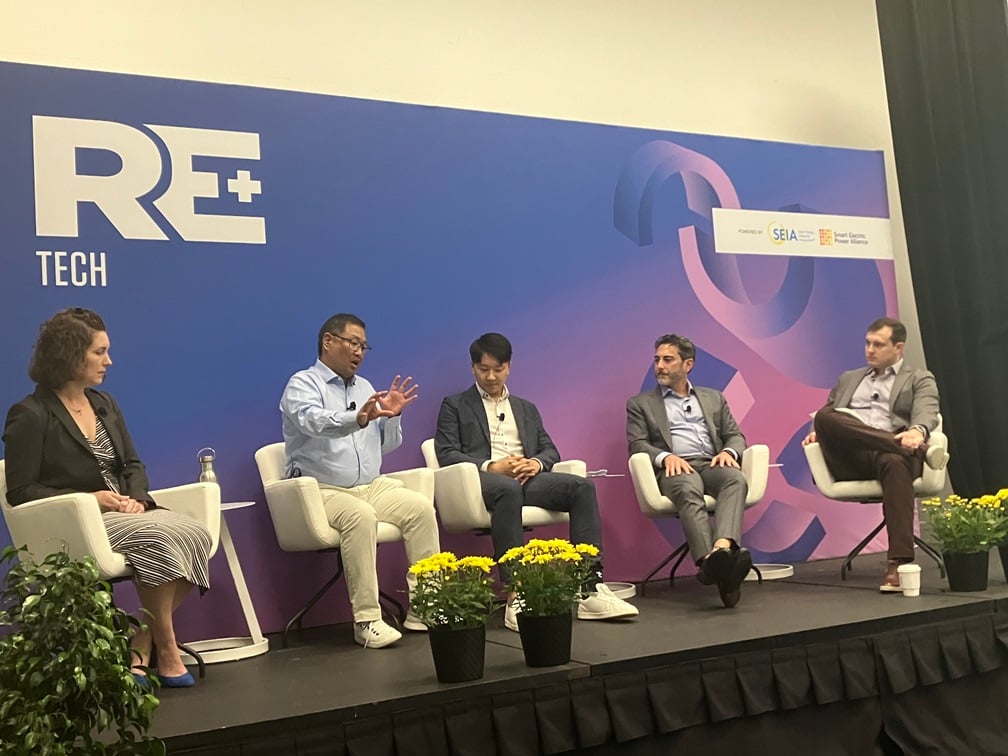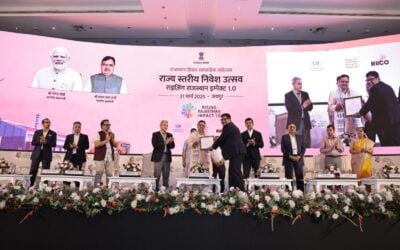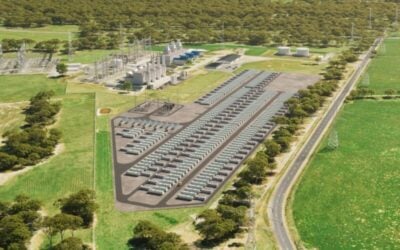
Would-be battery manufacturers that could serve the US energy storage industry with domestically made cells are facing a “perfect storm”, Energy-Storage.news has heard.
Tight capital markets, lengthy timelines for permitting and the sheer difficulty of producing high quality battery cells at a scale big enough to be profitable add up to a “significant challenge”, Andy Tang, VP of Wärtsilä Energy Storage & Optimisation (Wärtsilä ES&O) said in an interview today at the RE+ trade show in Anaheim, California.
Enjoy 12 months of exclusive analysis
- Regular insight and analysis of the industry’s biggest developments
- In-depth interviews with the industry’s leading figures
- Annual digital subscription to the PV Tech Power journal
- Discounts on Solar Media’s portfolio of events, in-person and virtual
The US government has stated its aim to support the production and deployment of American-made cells for utility-scale battery energy storage system (BESS) projects, which would breathe life into the economy, boost international competitiveness and secure supply chains.
As Tang said in a previous interview, the government has taken a ‘carrot and stick’ approach: incentivising domestic production on the one hand through the Inflation Reduction Act and Bipartisan Infrastructure Law incentives and imposing heavier tariffs on imported cells from China on the other.
However, the US industry “is at an interesting crossroads right now,” Tang said today at RE+, North America’s biggest clean energy trade show.
Section 301 tariffs on battery imports, set to increase from 7.5% to 25%, are a “ticking time bomb”, which will go into effect in January 2026.
In the meantime, the IRS has issued guidance on how tax credit incentives will be applied both for upstream producers and downstream developers making and using domestic products, which Tang said is welcome and “provides a lot of clarity”.
“The challenge now for the industry is actually getting the battery factories up and running, and I think it is a significant challenge. We have a bit of a perfect storm right now, in the sense that the capital markets are very, very tight, so raising money is very, very hard.”
‘Northvolt probably did just about everything right’
Andy Tang offered the example of European battery startup Northvolt, which has just announced a structural adjustment of its business, including layoffs and revision of its growth strategy.
Many, including Tang, had expected Northvolt to be among a few companies with a realistic prospect of meeting the requirements to build scale with quality products. The manufacturer had raised billions in investment and recruited engineers from all over the world to work at its manufacturing and R&D complexes, headquartered in Sweden.
In other words, he said, “Northvolt probably did just about everything right in terms of how they were trying to scale a battery business.”
Building a battery factory is “really hard”, and while that bar is set by a multitude of factors that include supply chain management, raw materials conditions and assembly processes on the manufacturing side, it’s the ability to produce sufficient batteries at scale with good offtake deals in place that really makes it so, Tang said.
The companies that appear able to do that within the US are “few and far between,” and ultimately, the demand for US-made cells far outstrips available supply.
“You’ll go and walk the floor this week [at the event], and you’ll see all these people claiming that they’ll have a battery factory up and running in 2026, and it’ll be a 10GWh+ production line, but the next question you should be asking is: do you have the land? Do you have the permits?”
Getting all of that in place is a multi-year process, and in the meantime, with China the established base of lithium-ion (Li-ion) battery manufacturing to the world, Tang said he is worried by some of the anti-China rhetoric that he hears.
The upcoming US presidential election throws in more uncertainty, but even with a Democrat win, the Wärtsilä representative believes the Democrats cannot be seen to be weak on China. Tariffs might not go up as much as they might with a Trump victory, but they are just as unlikely to come down if Harris wins, he said.
‘Onshoring battery manufacturing is a great idea; it will take years to achieve’
Luigi Resta, CEO of US renewable energy and energy storage developer RPlus Energies, agreed that the ability to source cells domestically, at least in the short term, looks very limited.
Resta said that while “the idea of onshoring manufacturing is great”, from solar to batteries to chips and other components and equipment there is growing demand for, “it will take years to get up and running”, he told Energy-Storage.news.
Investors will need to put billions into their plans over long timeframes, permitting will take time, and even sourcing the power to keep factories running will all be challenging, and Resta said that it may not even be to the US’ benefit to manufacture things that can be made more cheaply and at scale in other countries that might have more experience of doing so.
“We might not be the best place to manufacture some of these things. We should really take a hard look at whether it makes sense to take all this initiative and put all this constraint on the industry for plants that are fully automated,” Resta said, noting that most high-tech factories have such high levels of automation that they may not even be the drivers of employment that some might hope for.
“I visited a few factories last week, manufacturing facilities, for PV cells to wafers, cells to modules, and it’s fully automated. It’s all robots that do the work: so, what are we fighting over? Twenty jobs for manufacturing versus the 150,000 for installation, O&M, engineering, logistics, procurement and so on?”
US makers will figure it out by 2028
That all being said, Andy Tang asserted that over the longer term, by around 2028, the US likely will have figured out how to build batteries well, and at scale. However, it might be too late for many of the carbon neutrality policy goals that are in place.
Tang said that his team certainly are keen to source from the US if and where they can. Wärtsilä ES&O is working to secure supplies from US manufacturers, although Tang said nothing further can be said publicly, and in the meantime the company is also looking to secure supply from an upcoming factory in Southeast Asia, which will be made by a Chinese-owned company but will nonetheless be compliant with US rules.






